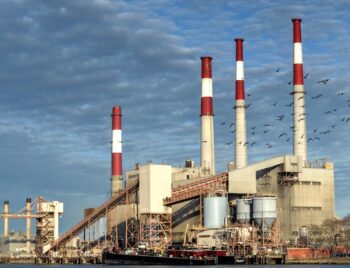
Greenland is melting faster than scientists previously thought, with the pace of ice loss increasing four-fold since 2003, new research has found.
Enormous glaciers in Greenland are depositing ever larger chunks of ice into the Atlantic ocean, where it melts.
But scientists have found that the largest ice loss in the decade from 2003 actually occurred in the southwest region of the island, which is largely glacier-free.
This suggests surface ice is simply melting as global temperatures rise, causing gushing rivers of meltwater to flow into the ocean and push up sea levels. South-west Greenland, not previously thought of as a source of woe for coastal cities, is set to “become a major future contributor to sea level rise,” the research states.
Read the full story at The Guardian
When the long term numbers are not scary enough, concentrate on one year’s weather instead!
I will explain.
Science Daily has more detail on the Bevis paper here. For some reason, it does not appear on the PNAS site yet.
Science Daily elaborate on the “faster than 2003” claim:
Bevis’ team used data from GRACE and from GPS stations scattered around Greenland’s coast to identify changes in ice mass. The patterns they found show an alarming trend — by 2012, ice was being lost at nearly four times the rate that prevailed in 2003.
Bevis said a natural weather phenomenon — the North Atlantic Oscillation, which brings warmer air to West Greenland, as well as clearer skies and more solar radiation — was building on man-made climate change to cause unprecedented levels of melting and runoff. Global atmospheric warming enhances summertime melting, especially in the southwest. The North Atlantic Oscillation is a natural — if erratic — cycle that causes ice to melt under normal circumstances. When combined with man-made global warming, though, the effects are supercharged.
“These oscillations have been happening forever,” Bevis said. “So why only now are they causing this massive melt? It’s because the atmosphere is, at its baseline, warmer. The transient warming driven by the North Atlantic Oscillation was riding on top of more sustained, global warming.”
But what happened in 2012?
Due to that weather event, the NAO, Greenland experienced an unusually mild year, with, in particular, a sunny summer.
https://notalotofpeopleknowthat.wordpress.com/2018/07/01/greenland-temperatures-in-2017/
Unsurprisingly, therefore, the Surface Mass Balance of the Greenland ice sheet shrank slightly, due to both reduced snowfall and ice melt:
http://www.dmi.dk/en/groenland/maalinger/greenland-ice-sheet-surface-mass-budget/
However, that was the exception. Last year, for instance, the SMB grew much more than the long term mean, as it did the year before.
Bevis’ claim that ice loss in 2012 was greater than in 2003 is based on one year’s weather and not the long term trend.
It is worth emphasising here that the SMB reflects both snowfall and ice melt, but not calving of glaciers. It is, of course, ice melt that Bevis is mainly concerned about here.
As we can see from the above temperature chart for SW Greenland, with the exception of 2012, temperatures since 2003 are little different to the 1920s to 40s, the last time the AMO was in warm phase, as it presently is.
There is simply no evidence at all of Greenland’s climate getting any warmer over the long term.
As for the lurid threats of multi meter sea level rise, according to DMI loss of ice from the Greenland ice sheet (from all causes) since 2003 has accounted for about 0.65mm a year of global sea level rise, little more than 2 inches per century.
Bevis asks:
“These oscillations have been happening forever. So why only now are they causing this massive melt?“
Because we have only been monitoring the melt for the last decade or two!
We know that global sea level rise was just as great in the early to mid 20thC, and there is therefore no evidence whatsoever that melting of the Greenland ice sheet was not just as great back then.
Read more at Not A Lot Of People Know That




















If you properly narrow the data you are looking at, you can always conclude the planet is warming.
Let me give you an example. From 5 AM this morning until 3 PM this afternoon, the temperature has increased quite a bit. If you track that into the future…
you get my point. It is not scientific if you cherry pick your data.
The Guardian,Der Speigle,Charle Hebo,the NYT’s and all the liberal left propeganda that can print or broadcast to brainwash everybody